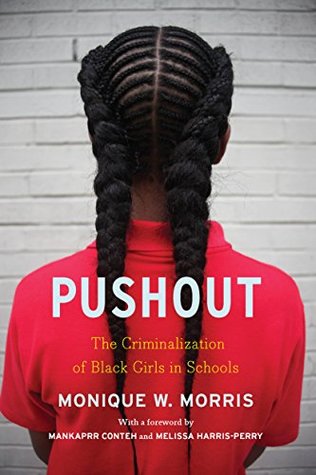More on this book
Community
Kindle Notes & Highlights
Read between
August 21 - August 31, 2020
For more than half a century, education has been constitutionally acknowledged as the primary tool for restructuring social hierarchies and elevating the conditions of historically oppressed peoples. Prior to that, this understanding engendered fear and shaped the poor quality of education afforded Black girls under the wardship of the court for some two hundred years. The education their modern-day counterparts receive raises the question of whether we want to restructure the social hierarchies or whether we want to leave the status quo intact.
The domestic gender justice agenda has also obscured experiences of struggling Black girls by steering the focus toward colorblind efforts that organize, invest, and develop strategies that purportedly support all women and girls—as if all girls are uniformly impacted by sexism, racism, and the consequences of patriarchy. The rather naive logic here parallels the cries that emerged shortly after “Black Lives Matter” unified millions in the wake of protests against routine police misconduct toward Black people: almost predictably, some people, including many well-intentioned ones, switched to
...more
Civil rights may be at the core of equal justice movements, and they may elevate an equity agenda that protects our children from racial and gender discrimination, but they do not have the capacity to fully redistribute power and eradicate racial inequity. There is only one practice that can do that. Love.


